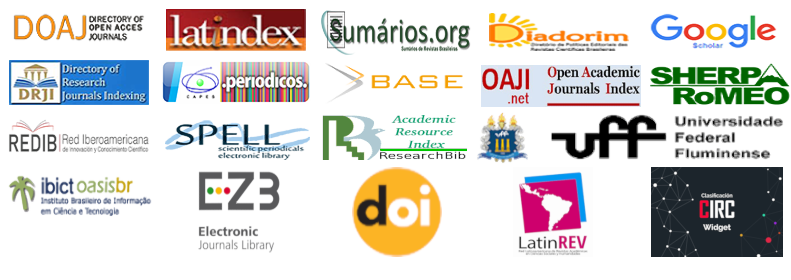Access to Information in Times of Pandemic:
An Analysis in Fluminense Cities
DOI:
https://doi.org/10.20401/rasi.7.3.499Keywords:
Fluminense cities, Bidding Waiver, Covid-19, Electronic portalsAbstract
The present study aimed to determine whether the cities in Rio de Janeiro that declared a state of public calamity as a result of the Covid-19 pandemic are complying with the determinations contained in §2 of art. 4 of Law No. 13.979 / 2020 with regard to the disclosure of information on acquisitions and contracts made by bidding waiver on their official internet sites. Therefore, compliance with the legislation was verified through online consultation on the electronic portal of each of the cities in the sample, using the proposed analysis model for measurement purposes. This research is a descriptive study, carried out through a survey, with a qualitative approach and whose source of evidence is the direct observation documented through an observation protocol. In 83% of the official electronic portals of the investigated cities, information was found regarding the waiver of bidding based on the emergency situation to combat the Covid-19 pandemic. The study allowed to identify the need to standardize several information, as well as the lack of advertising for emergency contracts. In general, no cities has fully complied with all the requirements determined by the legislation. It is noteworthy that the results obtained are limited to the sample of selected cities.
Downloads
Downloads
Published
Issue
Section
License
Copyright (c) 2021 Review of Administration, Society and Innovation

This work is licensed under a Creative Commons Attribution 4.0 International License.
RASI, in accordance with Law No. 9,610 of February 19, 1998, which amends, updates and consolidates Brazilian copyright law and makes other provisions, adopts the following conditions of the Copyright Assignment:
1. RASI maintains, with the transfer of copyrights, the possession of rights over the content published;
2. The author retains his moral rights of the content, including the right to be identified as the author whenever the content is published;
3. Despite the attribution of copyright, the author retains the right to reuse the material in future collections of his own work without encumbrance. The acknowledgments of the previous publication in the RASI are the only requirements in such cases;
4. The author may make photocopies of the content, or distribute it by electronic mail or fax, provided that they are intended for their own classes and for the purpose of meeting research objectives, provided that: (a) such copies are not resold and (b) reference to the original source of the publication and the name of the RASI are clearly indicated on all copies made of the document.











